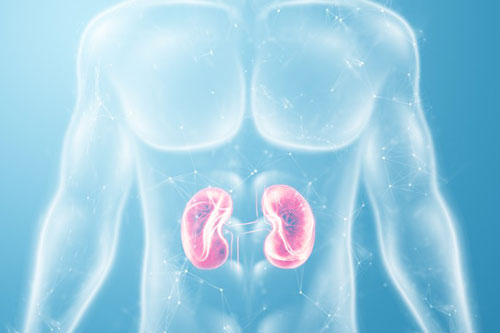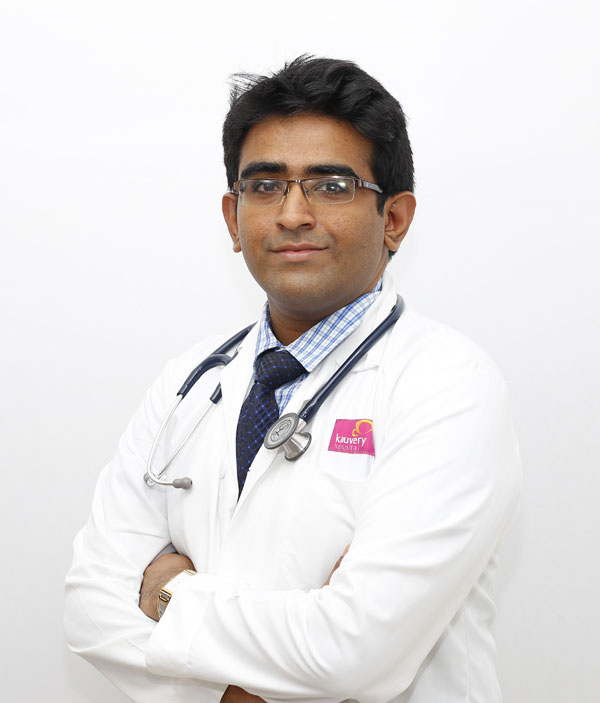Healthy Kidneys, Healthier Ageing
The kidneys are a pair of organs situated on the back side of the abdomen. They are 2 bean-shaped structures and are formed as early as the 6th week of embryo formation itself. It is interesting to note that the kidneys are originally situated near our hips and they migrate to the lumbar region as the embryo grows. Some people are born with one kidney, with the other kidney not developed at all (agenesis). Even a single kidney is enough to take care of the body functions for a lifetime provided other factors do not worsen its functioning.

The structural and functional unit of the kidney is called a nephron. There are 1 million nephrons in each kidney. Each nephron has a glomerulus (filtering apparatus of the kidney), proximal convoluted tubule, loop of Henle, distal convoluted tubule and collecting duct.
The kidneys are very essential for maintaining the body’s physiology. In brief, the various functions performed by the kidney are listed below:
- Excretion: Urea is the end product of protein metabolism and it is primarily excreted by the kidneys. Creatinine which we normally measure in the lab is actually a muscle protein derived from creatine. It is easily available to measure and correlates with the estimated glomerular filtration rate. Kidneys perform excretion of more than 1000 middle molecules which are deleterious to the body if retained.
- Acid-Base Regulation: Kidneys secrete H+ ion in response to exogenous acid or protein load. Distal tubule and the collecting duct secrete H+ ion.
- Vitamin D Synthesis: Kidneys play an important role in the final step of vitamin D activation to 1,25 dihydroxy vitamin D3 via the enzyme 1alpha hydroxylase.
- Erythropoietin Production: It is a hormone produced by the interstitial cells of the kidney in response to low hemoglobin. This hormone in-turn stimulates the bone marrow to produce red blood cells.
- Glucose Production: Gluconeogenesis is the formation of glucose which primarily takes place in the liver, but kidneys contribute to 20-25% of the glucose production.
- Immune Functions: The kidneys play a vital role in the immune functions, especially the innate immunity as they host T cells, B cells and dendritic cells in the interstitium of the kidney.
The kidneys are affected by various diseases:
- Diabetes Mellitus: Diabetic nephropathy is the leading cause of kidney failure both in the West and in Asia.
- Hypertension: Hypertension without diabetes, if uncontrolled, can lead to hypertensive nephrosclerosis.
- Glomerulonephritis: Ig A nephropathy is the most common glomerular disease leading to chronic kidney disease. To name a few others – focal segmental glomerulosclerosis, membranous nephropathy, membrano-proliferative glomerulonephritis and systemic lupus erythematosus.
- Interstitial Nephritis: Chronic interstitial nephritis is another cause of unexplained renal failure. Heavy metals, analgesic use, antibiotics and PPI are frequently implicated.
- Polycystic Kidney Disease: Congenital autosomal dominant and autosomal recessive polycystic kidney disease along with the rare medullary cystic kidney disease account for the other few causes.
Prevention is always better than cure. Salt restriction, adequate fluid consumption, maintaining normal body weight, exercise, adequate sugar control if diabetic, adequate blood pressure control if hypertensive, avoidance of frequent pain killers and antacids and avoidance of native medicines which may contain heavy metals are all crucial in preventing and slowing the progression of chronic kidney disease.
Life after death is possible through organ donation. Kidney failure is treated by kidney transplant if age and other factors are feasible for transplantation. Live-related kidney donation is possible through a simple surgery with no long-term side effects to the donor. As said earlier, we are lucky to live with one kidney and for organ donation, both live and deceased donor after brain death has to be encouraged.

Dr. Balaji Kirushnan
Consultant Nephrologist
Kauvery Hospital, Chennai

